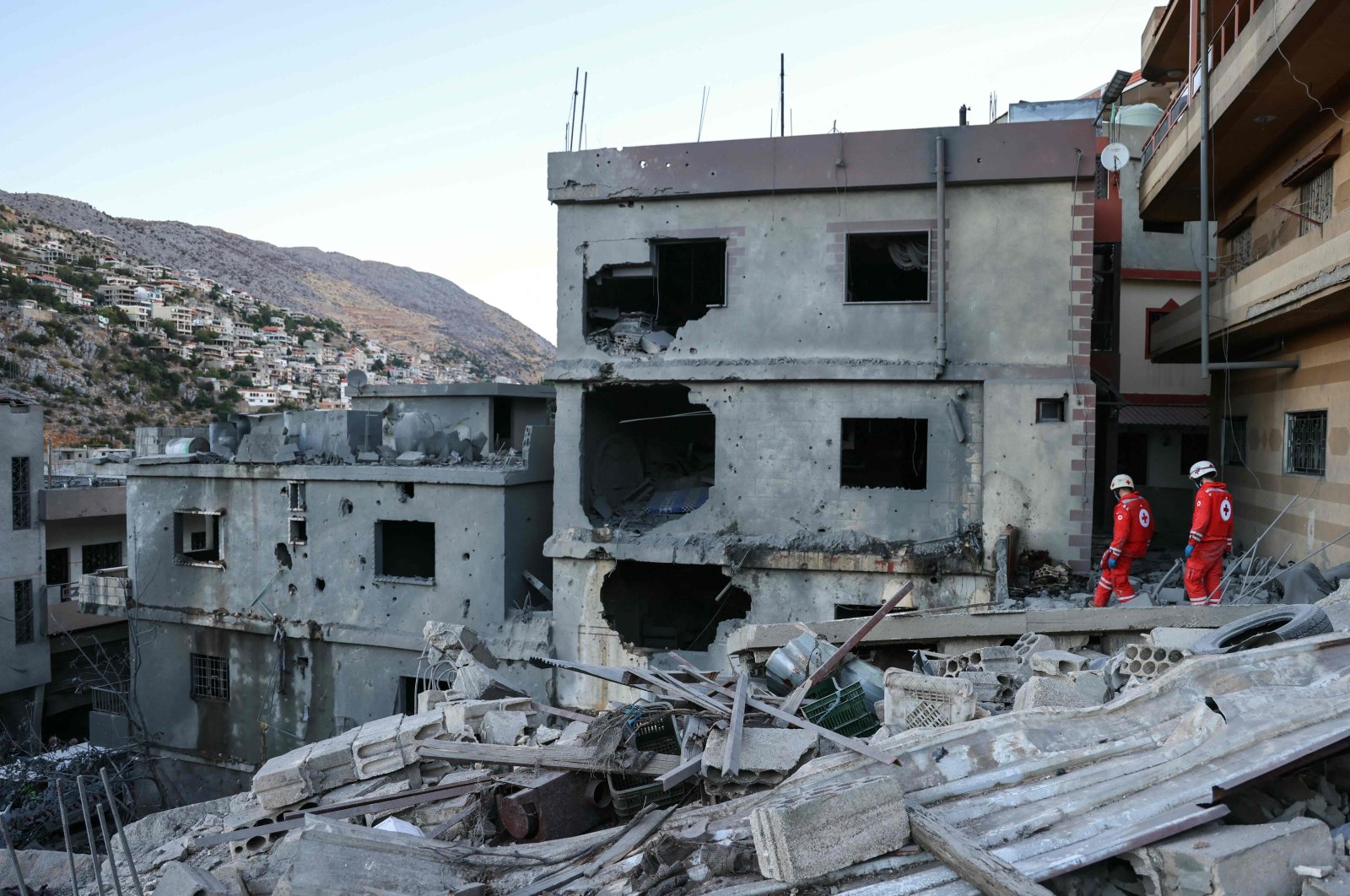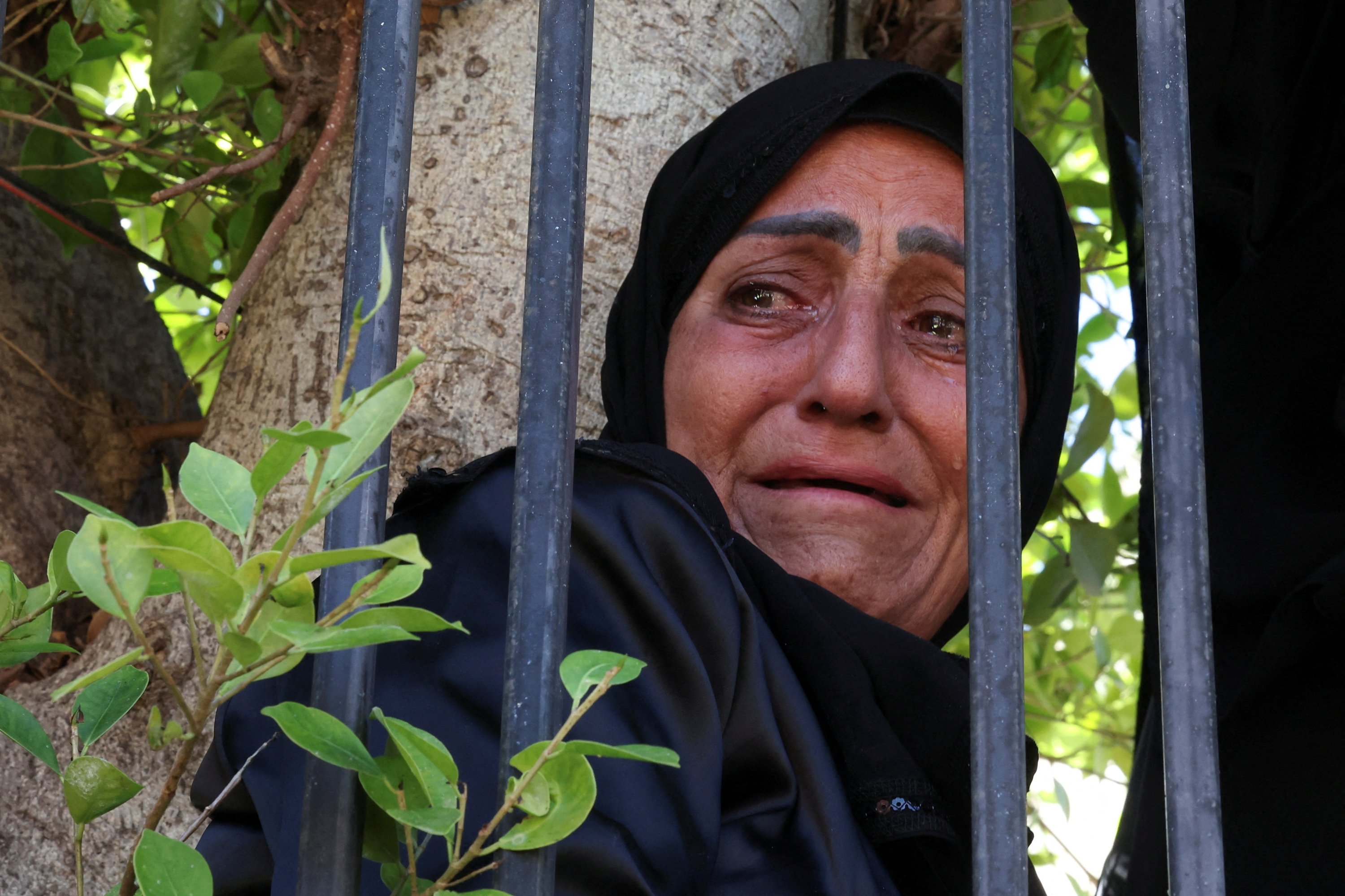
When Aline Naser first heard the evacuation warnings Israel was sending to residents of Lebanon, her thoughts immediately shifted to Gaza.
The 26-year-old Beirut resident has spent the past year horrified by reports of besieged Palestinians in the Gaza Strip, forced to move from one location to another, seeking refuge in "humanitarian zones," only to be bombed and ordered to flee again.
This week, the Israeli calls for Lebanese citizens to evacuate in anticipation of an expanding air campaign – delivered through mobile alerts, phone calls and leaflets – felt chillingly familiar.
"It’s definitely something on the back of my mind, and we don’t really know where exactly is safe," she said.
Nearly a year into its war in Gaza, Israel has intensified its military campaign against Hezbollah in Lebanon, raising fears among Lebanese residents of a repeat of Gaza's evacuation orders and airstrikes.
While Israel claims its operations target Hezbollah's weapons sites to enable displaced Israelis to return home, it has not yet deployed ground troops in Lebanon.
However, concerns persist that Israel's aggressive tactics, criticized as disproportionate by rights groups and the U.N., could mirror those used in Gaza, with Israeli officials threatening significant destruction if Hezbollah's attacks continue.
On Monday, Israel conducted strikes on 1,600 targets across Lebanon, resulting in 492 deaths and injuring 1,645 people, prompting a significant wave of displacement as thousands fled from southern Lebanon to the north.

This unprecedented one-day toll marked the deadliest assault since the 2006 Israel-Hezbollah war.
Throughout the day, the Israeli military issued urgent evacuation warnings, advising residents to stay away from areas where Hezbollah stores weapons, which many found difficult to identify.
"Please get out of harm’s way now," Israeli Prime Minister Benjamin Netanyahu urged in a recorded message. "Once our operation is complete, you can safely return to your homes."
Evacuation orders have been central to Israel's military strategy in Gaza over the past year, with 1.1 million civilians instructed to move from north to south in the conflict's first week, causing chaos.
The Israeli military has continued to issue evacuation orders, urging Palestinians to relocate to designated "humanitarian zones" while claiming to target embedded Hamas members.
The ongoing campaign has resulted in over 41,000 Palestinian deaths, with more than half reported to be women and children.
Meanwhile, residents in Gaza face sealed borders and limited escape options, while those fleeing strikes in Lebanon find refuge in safer areas.
Since Hezbollah began firing rockets into Israel after Hamas' Oct. 7 incursion, both sides have engaged in escalating cross-border strikes.
The situation has led to rising tensions and fears in Lebanon, which is already facing a severe economic crisis.
Recently, hostilities intensified when explosives used by Hezbollah detonated, resulting in numerous casualties and injuries, with Israel believed to be behind the attack and targeting Hezbollah commanders.
As Hezbollah increases its attacks, injuring several in Israel, the region edges closer to full-scale war.
In Beirut, 25-year-old Jana Bsat prepares for evacuation, feeling a sense of surreal fear as her city experiences escalating tensions similar to those in Gaza.
She criticizes the psychological toll of the conflict, recognizing it as a strategy of warfare.
While Israel's campaign in Lebanon targets Hezbollah, aiming to push them back from its border, the dynamics differ significantly from Gaza, where the goal is to dismantle Hamas.
Unlike Gaza's siege, Lebanon's larger geography and diverse political landscape, including significant opposition to Hezbollah, influence the conflict's trajectory.
Ali Safa, a 30-year-old interior designer, expresses confidence that Lebanon's situation will not mirror Gaza's, citing Hezbollah's strength and resources.
U.N. Secretary-General Antonio Guterres warned that the world cannot afford Lebanon to become another Gaza, as the region teeters on the brink of war amid escalating hostilities.
Israel's army chief indicated preparations for a possible ground invasion.
Many in Lebanon are haunted by the relentless images of destruction in Gaza, fearing a similar fate for their country.
Low-flying Israeli jets and buzzing drones have become a source of anxiety for residents, with some, like Jana Bsat, growing desensitized to the sounds of war yet still feeling the weight of impending danger.
Despite acclimating to the violence, she expresses lingering fear about what may come next.
